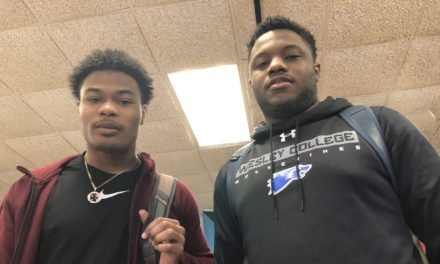by Raiisha Jefferson, The Whetstone
Last year, Wesley students and faculty fought to keep student fees separate from tuition so they could retain control over the money.
Student funding goes directly into campus groups such as the Student Activities Board (SAB) and the Student Government Association (SGA), allowing these groups to to plan large events, such as the trip to Fright Fest at Six Flags.
“Solving the student funding issue reestablished our autonomy as the ‘Student’ Government Association,†said Savannah Durham, President of SGA. “The (SGA) funding went up $2.50 per student. The money will be used the same as it always has – funding student organizations and their events. It could potentially allow for SGA to do more co-sponsoring for student organization events.â€
SAB President Cheyenne Lazarus said the Student Activities Board was able to begin a fresh start on planning activities for the fall semester.
“If the student funding issue wasn’t solved, we probably wouldn’t have most activities,†she said. “We would have more restrictions on activities, but since we still had roll-over money from the spring, we were able to use it all in this year’s fall semester.â€
Roll-over money is money not spent the previous year that is rolled over into the following year.
“So far things are going well, the allocation was made for the fall budgets according to the new formula,†said Dr. Cynthia Newton, SGA adviser. “There is $135 allocated to student activities.â€
Lazarus said there are many activities to do on campus.
“If you want something to do on campus, you got to look out for it,†she said. “We have an Instagram account, so if you want to get involved, get involved. We also have meetings where we ask for suggestions on activities, so there’s always something to do.â€
Durham said both SGA and SBA work to get students involved in making decisions.
“We’ve also put a lot of time and effort into advertising for the different organizations, by sending event information out through student all emails, Twitter, Instagram, and Facebook,†she said. “It’s important that the student population knows about all of the events our student organizations are doing.â€




